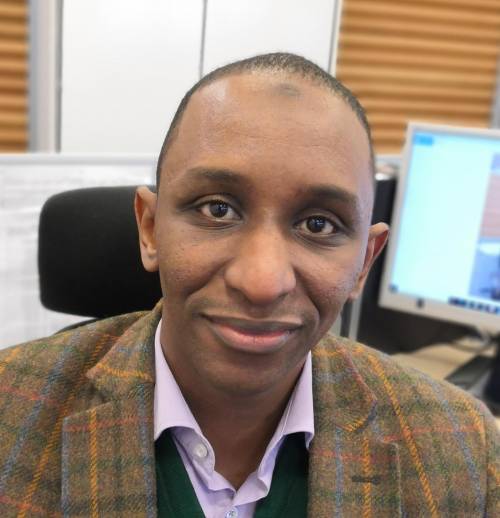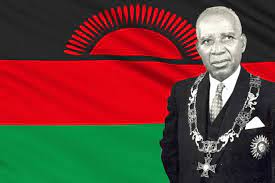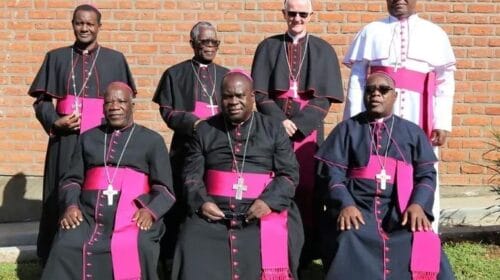Clinton Did It in 1993, Why Can’t We Do It? – A Radical Approach To Reduce Inequality In Nigeria, By Dr Nasir Aminu
The last months of Buhari’s government is filled with a devastating feedback loop of macroeconomic and social issues, coupled with another outcome of the gravest forces of our time: economic inequality. Of course, the existing issues like extreme poverty, high cost of living, insecurity, and more deepen inequality; likewise, inequality worsens the spread of these issues especially in the rural communities. Regardless of opinions, the regime will be judged on these facts. Notwithstanding, widening income inequalities is the most defining challenge of our time, as noted by American President Obama in 2013.
Unlike the other countries where poverty is diminishing in absolute terms and inequality is increasing, Nigeria is faced with rising poverty and widening inequality. The World Bank report highlights that more than two out of five people in Nigeria, 46% of the population, live in extreme poverty. The relative income has not grown for over six years, making them monetarily poor. The cost of living has increased due to the high inflation rate. These people are also disadvantaged in education, infrastructure and other basic needs by the state and federal government.
Comparatively, Nigeria’s three richest men have a combined wealth of $23.9, according to the 2021 Forbes list of Africa’s billionaires. Aliko Dangote is worth $12.1 billion, Mike Adenuga is worth $6.3 billion, and Abdussamad Rabiu is worth $5.5 billion. According to Oxfam, the wealth of these three men increased their wealth by $6.9bn since the pandemic. If 64-year-old Dangote spent $1 million every day (414 million Naira) without reinvestment, it would take him 33 years to exhaust his fortune – when he is 97 years old. The wealth of these individuals could end extreme poverty at a national level. Yet, in 2021, the number of people in extreme poverty had increased by seven million as Nigeria maintained its position as the world’s poverty capital.
But there is a silver lining to all these. According to World Bank data, the life expectancy of Nigerians has increased from 46 years in 1999 to 55 years in 2019. It is one of the few real successes of this government, although the ones before it should be credited too. Readers may draw opposing opinions even if they agree on the same set of facts. These should give us all hope.
Like Nobel economist Joseph Stiglitz’s, the International Monetary Fund showed that inequalities tend to slow a country’s growth and make growth more volatile. Research by the IMF showed that raising the income share of the poorest 20% of the population contributes to the country’s growth. In contrast, increasing the income share of the country’s wealthiest people decreases its growth. That is why the countries under the Organisation for Economic Co-operation and Development rejected the idea of trickle-down economics – a means of spreading income from the rich to the poor. It was popular under the Reagan and Thatcher administrations – in the 1980s. There is overwhelming evidence that inequalities are not inevitable, poverty more so. Inequalities and poverty are socially reproduced and can be changed.
Despite promises to tackle corruption and injustices, the cost of governance contributes to the problem. According to Senator Shehu Sani’s revelation, Nigeria’s top politicians are paid over 750 times more than a school teacher and 150 times more than a policeman or other security personnel. Indeed it would take a typical worker on a minimum wage of 102 years to rake in the annual amount handed to a Nigerian Senator. Research shows that reducing the gap between rich and poor is not limited to the good for the economy. Evidence shows that countries that reduce inequality in their economy have seen increased life expectancy, higher educational attainment, more social mobility, trust and more. These countries include Namibia, Togo, and other South American countries with a similar economic profile to Nigeria. The point here is that fairer, more equal societies benefit everyone. So, the question is how to tackle them.
Redistribution of resources is vital. Changes to the current policy to address the unfair tax burden on businesses is imperative. Doing so could potentially keep millions of people out of poverty every year instead of pushing 7 million people into poverty every year. Increasing inequality was placing a more significant fraction of the nation’s income in the hands of those facing higher tax rates. The Nigerian tax system is regressive, which means the lower-income individuals contribute more to the government revenue than wealthy individuals. The public resources are also spent unfairly and inefficiently. Changing to a progressive wealth tax policy could lead to improvement and efficiency. A progressive wealth tax is an annual tax imposed on an individual’s net wealth, where the wealthier individuals pay more. Of course, the ability to pay and other principles of taxation should be considered.
Oxfam’s 2022 inequality report shows that Nigeria has 4,690 individuals whose net worth is at least $5 million and about 250 individuals with over $50 million. The report indicates that imposing an annual tax of 2% on wealth over $5m, 3% for those with $50m, and 5% on the three billionaires would raise $4.1 billion every year. If the wealth tax was raised for the higher earners, say 5% on wealth over $50 million and 10% over $1 billion, the annual revenue generated would be over $6 billion. The yearly wealth tax would be enough to provide basic needs, like adequate water supply, homes, schools, hospitals, electricity, and roads, for a large part of the population. All things being equal, investments like these would reduce the existing social problems of poverty and inequality in our societies.
A lesson from the Clinton administration in 1993 can shed light on the success of this policy. As the American government faced an ever-increasing deficit, tax increases appeared necessary. A proposal was put that those who had benefited most from the economic expansion and tax cuts of the 1980s should pay more taxes. Only the top 1.2% of taxpayers experienced rate increases. For example, married couples with incomes above $140,000 had their income tax rates increased, from a marginal tax rate of approximately 28 to 36 or 39.6%. As it turned out, the tax revenues raised on upper-income individuals in the years following 1993 were far higher than had been anticipated. The increased revenues were primarily responsible for eliminating the deficit in the late 1990s. It is worth noting that Professor Martin Feldstein, Reagan’s chairman of Economic Advisers, argued that the tax increase would raise less revenue than what was estimated. But history showed he predicted wrongly.
In the context of Nigeria’s macroeconomic and social crisis, turning a blind eye to inequality would prove disastrous in years to come. Like Clinton, a political will to tackle these issues is required. This year, 2022, will be the last full fiscal year of President’s Buhari, where he has the opportunity to make amends.
Dr Nasir Aminu is a Senior Lecturer in Economics at Cardiff Metropolitan University. (Twitter: @AminuEcon)




